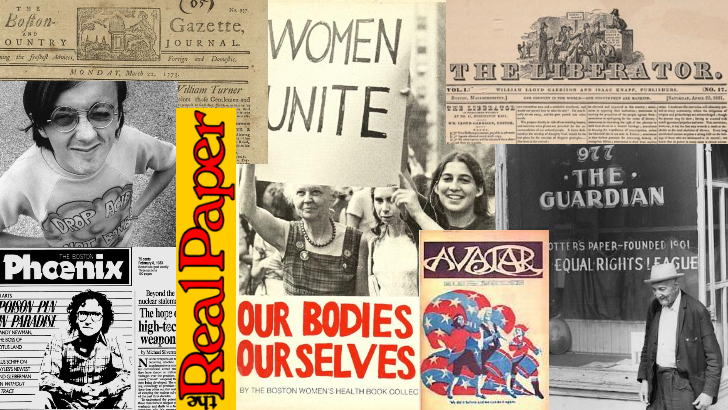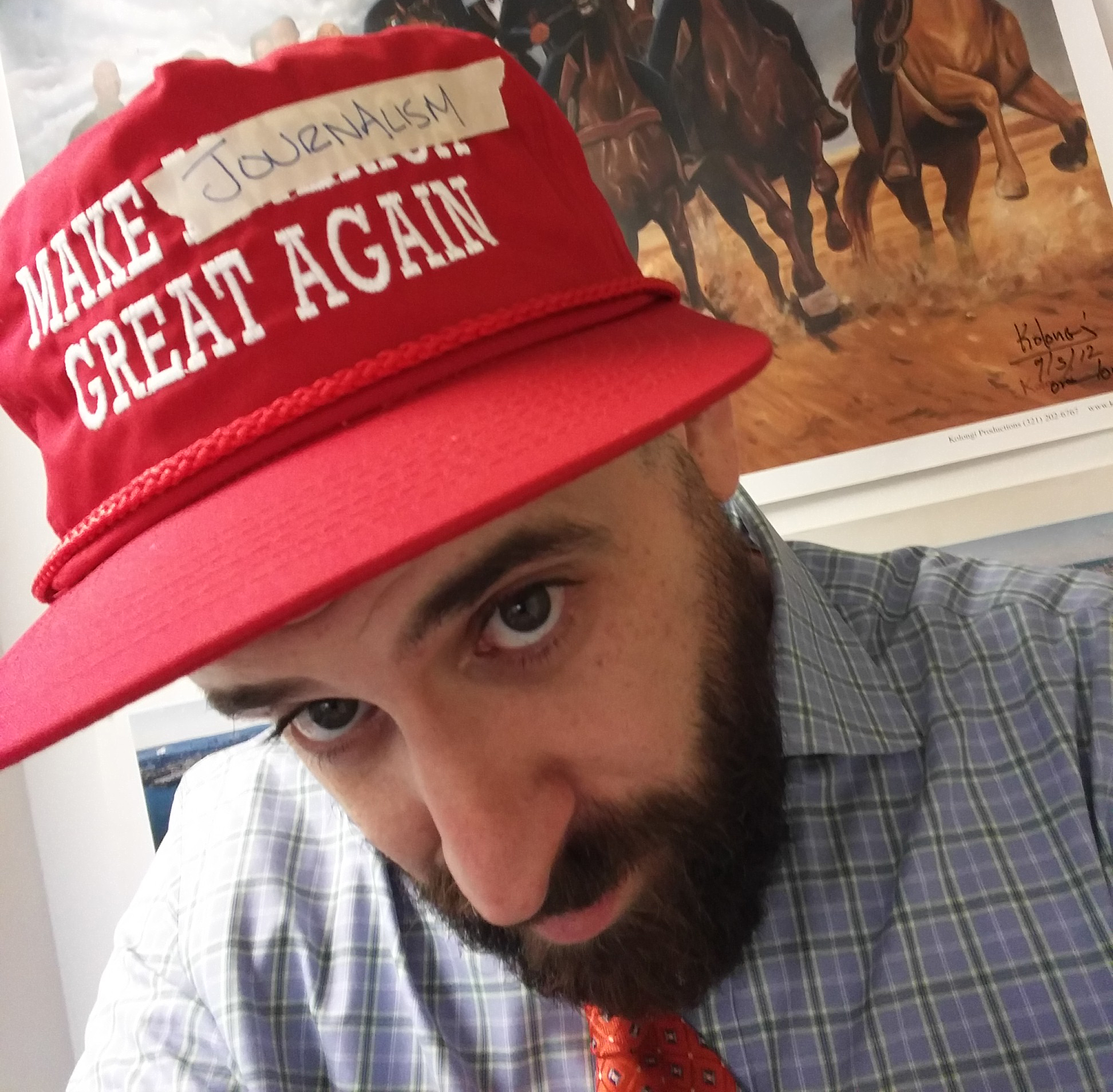
The history of independent media runs deep in Boston; BINJ is an attempt to keep that tradition alive. (Image courtesy of DigBoston.)
As a progressive who deplores violence and privatization and comparable horrors, I am accustomed to losing in politics — from campaigns I’ve invested time or scratch in to those which I have simply backed in the booth. My last political gig before taking a reporter’s vow of economic celibacy was as a runner for the 2004 presidential campaign of Dennis Kucinich, the former Ohio congressman and noted pacifist. After Kucinich was nearly laughed off of a primary debate stage — by other Democrats, it should be noted, however obvious — for suggesting that he would establish a Department of Peace, I turned to the indie press and never looked back.
That’s but one of many experiences that braced me for a Donald Trump victory. Since my hunches and proclivities are statistically unpopular, I am perpetually prepared to lose ground in the short-term so long as there’s opportunity to build a blueprint for long-term successes and impact. Hate or love us for it, my team at the Boston Institute for Nonprofit Journalism (BINJ) began thinking up ways to capitalize on an upset by Trump long before America failed at the polls. I’ll share our general battle plan, but first, here is what I think essentially went wrong …
I am not of the school that believes Trump got a free pass from the press. I read thousands of articles about the campaign over the past year, many of which were as fair and thorough as they were insanely troubling. Nevertheless, it’s undeniable that far too many mainstream outlets, especially over the past couple of weeks, jumped into the Democratic tank. From partisan reporter tweets to broadsheets giving more play to Trump-bashing op-eds than they did to trail coverage, traditional hacks and their editors demonstrated, however inadvertently, that there is no objectivity in journalism. That makes alternative types like me look good, since we’ve been saying that forever, but it also makes rank-and-file reporters look fraudulent — especially as they now attempt to resume business as usual. I don’t know if such behavior actually impacted the election, but it certainly validates my team’s approach moving ahead.
Most importantly for independent media makers, people are looking for new places to turn for their news. Bold and preferably anti-partisan publications, like weeklies in the Association of Alternative Newsmedia and outlets with muckrakers like those in The Media Consortium, whose members set the tone of progressive coverage on national issues. As the editor of the alternative DigBoston and the co-founder and editorial director of BINJ, I welcome such curiosity and enthusiasm, and hope that Baby Boomers who have slid toward the center return to the kind of grass-roots social justice coverage that motivated them back in the day.
On the media’s end of this transaction, it’s not enough to mock folks for their lack of knowledge about things like the surveillance state and local politics — we have to engage them outside of our own comfort zones. Luckily there are some excellent models to emulate, from nonprofit leaders like the Texas Tribune, which brings together readers, journalists and politicians for civic dialogues, to Vice, Fusion and BuzzFeed often putting fringe voices in front of audiences much larger than the underground press can reach on its own.
At the very least, it is hopeful that so many people are writing. And making media of all kinds, however trite, and even if it’s just on Facebook. The alternative press has always taken input and engagement seriously, long before large outlets cheapened terms like “citizen journalism” by using readers for free content and clicks. There is no stopping aggravated souls from searching for answers and sharing, and in this case I believe that many will inevitably grow into reporters and polemicists of note. They always do.
Harrowing events, and there have been far worse tragedies than Trump of late if you consider war, natural disasters and mass shootings, get outraged people putting pen to paper, mouth to mic, and so on. Take, for example, the mortgage crisis of the last decade that spurred Occupy Wall Street and innumerable prominent thinkers. The alternative outlets that harness said energy and nurture said talent — particularly young and marginalized voices — will live long and prosper. Mine will be among the many.




